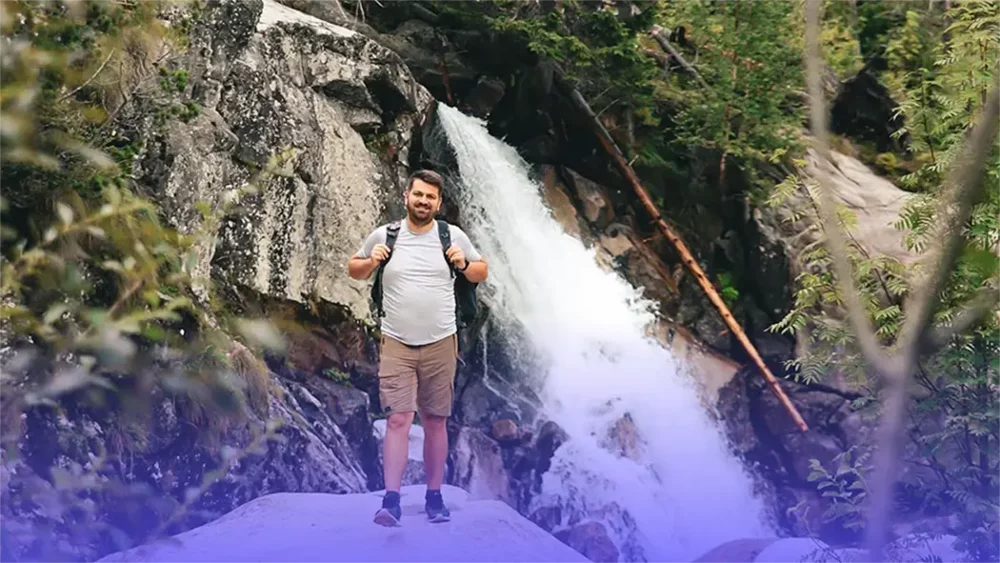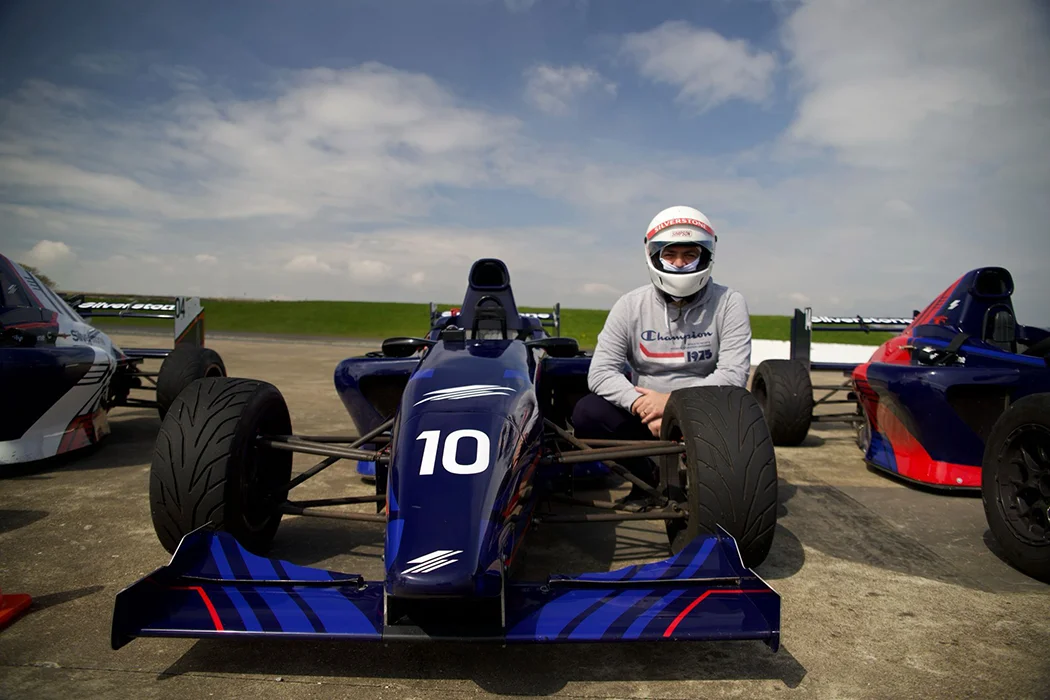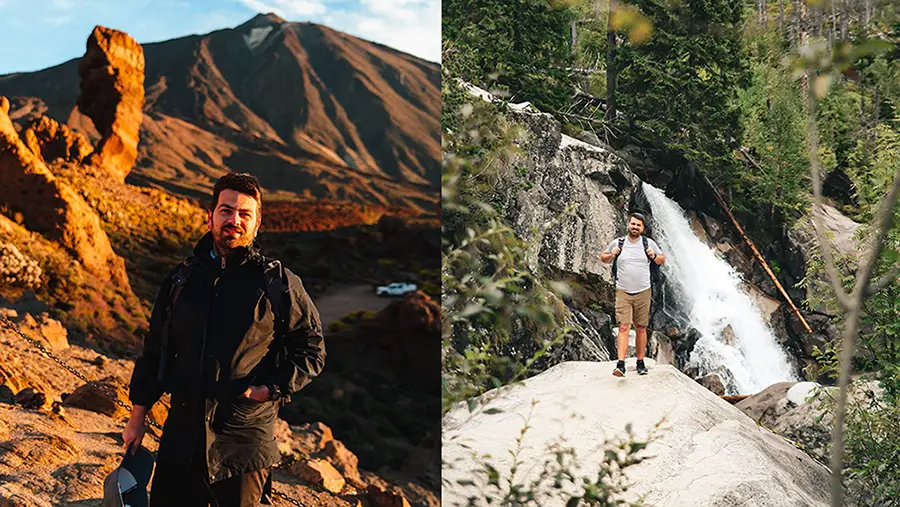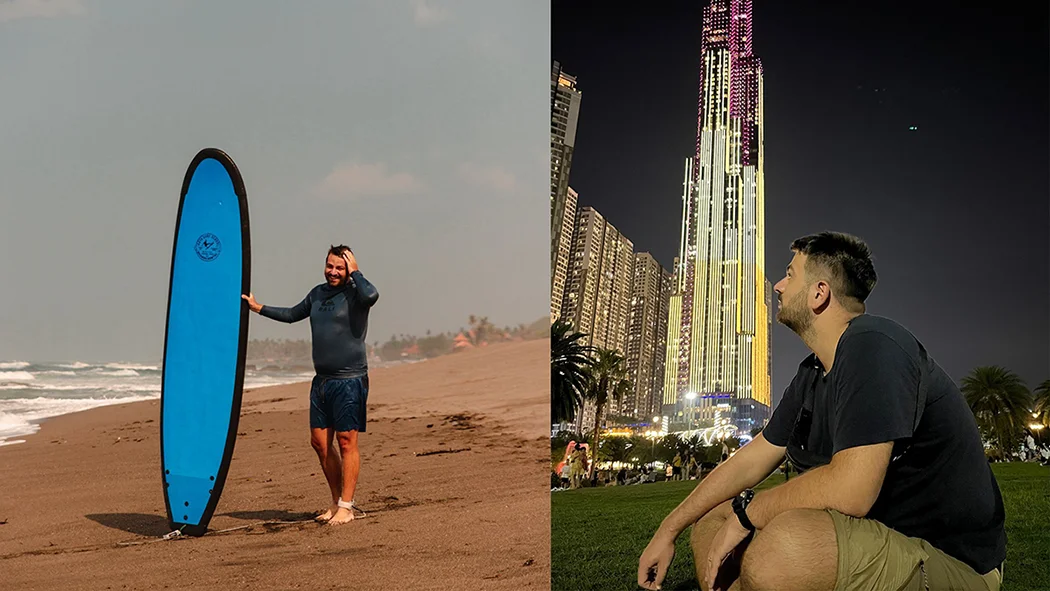Jan Verešpej: Even if you work remotely, interpersonal contact is important

Honza joined Sloneek relatively recently. However, he quickly took on a key role – becoming the CTO and leading the development of the application. He has extensive experience with software development, having worked for a company in Oxford as a Tech Lead, but programming has been his passion since his school years. He has worked remotely for at least part of each year. What does he think about remote work? And why didn’t he choose to study nuclear physics? You will find out in our interview.
Let’s start with what exactly you are responsible for at Sloneek.
I am mainly responsible for the processes in development, the entire development team, including hiring, task scaling, constant improvement, and application development.
However, the entire process is set up so that we first conduct surveys among customers. These are led by product managers, who simultaneously figure out how to solve a specific problem or find the best possible solution. And basically, when they finish, we begin. But it’s hard to say exactly when the product team’s work ends and when ours begins. There is a lot of overlap.
So, who sets the priorities for what will be done on the app at the moment?
We collaborate on this with Filip (note: CEO of Sloneek). We make decisions based on the data we have, whether it’s product data, data from the revenue team, or development. Usually, the entire leadership team is involved in the decision, but the final word and responsibility for how the app will develop lie with Filip.
And how did you get into your field?
I’ve always been drawn to computers. We usually played various games with my friends. A large part of my childhood was spent playing computer games and doing mini-programming and such. Of course, my mom was constantly asking what I would become since I spent all my time on the computer. 😊
At high school, there was also a lot of math, computer science, and physics, and when I was thinking about what to do after graduation, I had two areas that interested me. The first was nuclear physics, and then there was computer science. Ultimately, practicality won – computer science. It’s a field that’s advancing rapidly, and back then, you could get into it almost anywhere without applications. So it was essentially an easy choice. I chose computer science in Bratislava because, at that time, it was simply the best school in Slovakia.
And what was your journey to Sloneek?
At the beginning of 2023, I met Filip for the first time. We went out to eat with our wives, mine was already working at Sloneek at the time. We were living in the UK, where I was working for a company in Oxford. But Filip and I got into a conversation about work and technologies, what we were currently dealing with, and what we were working on.
During the conversation, the idea came up that I could help Sloneek with some things, at least on a consulting level. And that’s how it started. At first, it was just a few hours a week, and gradually the hours increased until it became a part-time role. After Sloneek received investment and thus had a budget to expand the team, I switched to a full-time role.
So, you got into Sloneek thanks to your wife?
Yes, exactly.
You mentioned that you worked in the UK. How long did you work there?
About two and a half years. Part of the time we lived in the UK in Oxford, and part of the time we were in Slovakia.
So, you have extensive experience with remote work. Have you worked remotely your entire professional life?
Actually, yes. My first job was for a company that created mobile applications. My main responsibility was back-end development. I started there as a third-year student. Although remote work wasn’t even a consideration back then, we already did our work from wherever we wanted. We had offices in Bratislava where we would meet whenever we felt like it. But even back then, I was traveling, so I used hybrid work methods.
Then I worked with the same group of people in a new company that transformed from the original one, essentially until remote work came along, and we said, “This is exactly what we’ve been doing all along, it just now has a name.” 😊
So, yes, I’ve been functioning this way pretty much the whole time.
And how is it?
Sometimes it’s great, sometimes not so much, but if you set it up so that you can meet with others every once in a while, then for me, that’s fantastic. You have the advantage of not being tied to any specific city, but you also maintain contact with people, which I think is incredibly important.
For the team to function well, people can’t just be icons on Slack. I need to know that I might be facing similar challenges as a colleague, that I’m not the only one having a bad day, that we’re dealing with similar concerns at home, that we’ve had children, and so on. And this can’t happen without in-person meetings.
And I believe this is what makes teams much more functional than just calling online, ending a meeting, and not knowing anything about each other. I honestly can’t imagine working for an American company where the team is anonymous.
There are people who view work as just work, who simply put in their 8 hours, close the laptop, and go on to their hobbies, cycling, children, family, etc. For them, work is just work – an unavoidable evil, a way to make money.
That’s not my case. For me, it’s important to work with people I can meet from time to time and stay connected to a specific team and location. Right now, I’m not in Europe, but I know that when I return, there will be a team-building event, and then a month later, we’ll meet again on a development day with my entire team.
So, in my opinion, working remotely is great, but it’s important to stay connected. And even though the Sloneek team is divided between Slovakia and the Czech Republic, today’s world allows us to travel wherever we need to within a few hours. Even when I worked in Oxford and lived in Bratislava, I regularly flew there to meet with my colleagues.
So, if you were to give someone tips on how to handle remote work, what would it be, aside from the fact that it’s good to occasionally meet with the company and maintain interpersonal contact with colleagues?
Well, it’s extremely important to set up your work environment when working remotely. Personally, I need to have my own office, where I can shut the door and focus on work. Only when I’m done, do I move to the living room and common spaces, like we have here in Bali.
Currently, you’re working with other colleagues from Asia. Do you have time to explore the surroundings?
Right now, we’re in Bali. We’ve already explored the entire island (we were here last year), so there won’t be any big trips. Of course, we spend weekends actively, but for me, being here is about taking a break from everyday responsibilities and worries. Life here is very simple.
You don’t have to do laundry, iron, clean, or even shop… These are often the necessary evils that we deal with in daily life.
When we’re in Slovakia, we’re deciding if we should have the weekend to ourselves or if we need to cook, go shopping, clean, do laundry, and handle other household chores. Or if we’ll go on a trip and take care of these things during the week.
I know that dilemma. And do you have these services included with your accommodation in Bali?
It’s not necessarily included in the accommodation. Just recently, I took a bag with 5 kilos of laundry, and within 24 hours, everything was washed, folded, and sorted, all for three euros.
And what about shopping or food?
We don’t worry about shopping. We usually order food or go somewhere to eat. Local prices make it affordable. Occasionally, we buy fresh fruit. I definitely recommend spending the winter months here, especially if you don’t have school-age children.
And what do you do in your free time? Besides traveling, of course.
Lately, I’ve been trying to move and take care of myself, because after turning 30, things start to go downhill with the body if you don’t pay attention to it. 😀
I tried running, but now I’m mainly focusing on strength training. This is also because many studies show that up to the age of 30-35, it’s still relatively easy to build muscle mass. After that, it’s more about maintaining it.
Traveling takes up a lot of my time. I also like to read books from time to time. And when we’re in Bratislava, my wife and I like to go to the city for a good coffee and a croissant. I’m a bit of a café lounger.
I also enjoy watching Formula 1 and football. I’m a Liverpool fan.
You mentioned a good coffee and croissant… How is it in Bali? Do they have good coffee, or are you looking forward to the one in Bratislava?
In Bali, it’s more of a challenge to find a local restaurant and Indonesian food than to visit an Italian or Japanese restaurant. There are various cafés, bistros, and restaurants offering food from all over the world. So, there are plenty of options in a relatively small space. Especially, we’re in an area that is specifically built for digital nomads, expats, and people like us who want to work remotely occasionally.
Indonesia has various types of visas, ranging from a few months to several years, and this system is heavily supported because it brings a lot of money into the country.
If someone is looking for experiences in Bali and wants to learn about local culture, I recommend visiting a different Indonesian island or at least heading inland on Bali, where they still preserve religious traditions, spirituality, and customs. Otherwise, most of Bali is already globalized.
That’s a bit of a shame, but at least you don’t have to wait for a good coffee until you’re back in Bratislava.
That’s true. But overall, in Southeast Asia, whether it was Vietnam, Thailand, or Malaysia, there was never a problem finding good coffee.







